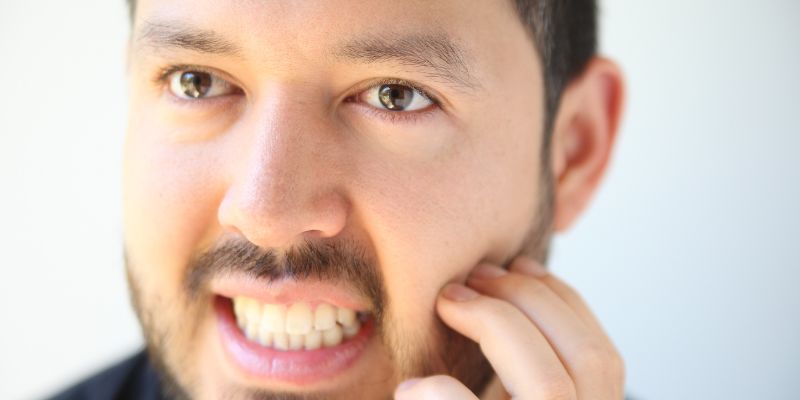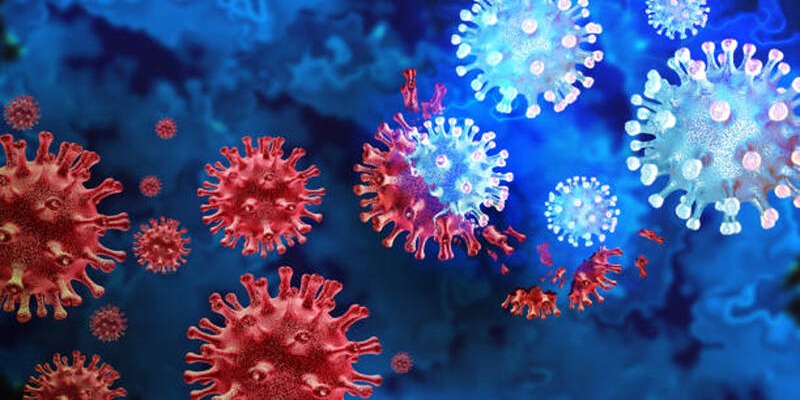Itchy Beard: What Are Its Common Causes and How To Prevent It
Though growing a beard can seem like a brave and interesting decision, the continual itching that usually results can soon become a tedious obstacle. Whether you have grown a beard for years or are just beginning your beard adventure, practically every man sometimes deals with an itchy beard. The good news is that knowing what's generating the itching will enable you to identify the appropriate fix.
It may be as straightforward as dry skin or something more complicated like an allergic response or skin problem. In this guide, we'll explore the most often occurring causes of an itchy beard and provide simple advice on how to maintain the best possible appearance and feel of yours. Bid farewell to irritation and welcome a comfy, healthy beard!

Reasons Why Your Beard May Cause Itchy?
Knowing the reasons for an itching beard will enable you to identify the appropriate comfort and relief techniques.
Dry Skin Under Your Beard
One of the most common reasons for an itching beard is dry skin. Growing a beard could cause the skin under it to not get the same treatment as your face's rest. Lack of moisture could lead to itchy, dry, flaky skin. It is especially likely in colder months or if you wash your face with strong soaps. Ensure you routinely hydrate the skin behind your beard to correct this. Balm or beard oil can assist in moisturizing the skin and relieve itching.
New Beard Growth
Itching is often involved when you first begin growing a beard. The new hair could aggravate the skin and produce the known itching as it grows. That is so because sharp tips of your hair result from shavingthese sharp tips puckle the skin as they grow back, causing pain. The good thing is that as your beard lengthens, this itching often disappears. Applying beard oil can help to ease irritation and improve the comfort of the process in the interim.
Poor Beard Hygiene
Ignorance of proper beard cleansing will let dirt, sweat, and oils accumulate. It irritates your pores and might clog them. Additionally, trapping dead skin cells and a dirty beard can cause itching skin. Regularly washing your beard with a moderate beard shampoo will help avoid this. It won't strip your beard of natural moisture while removing dirt and oils. Keeping your beard smooth and avoiding more irritation can be achieved by following up with a conditioner or beard balm.
Ingrown Hairs
One uncomfortable and itchy issue might be ingrown hairs. It occurs when a hair curling back into the skin replaces growth outward. Red rashes, discomfort, and itching can all result from ingrown hairs. If your beard hair is curly or coarse, you are more likely to have Regular exfoliating of your beard area to help prevent ingrown hairs. It lets your beard hair grow correctly and helps eliminate dead skin cells. Try not to scratch or pick at any ingrown hairs you currently have; this will create problems.
Allergic Reactions to Products
Sometimes, the things you put on your beard could create the itching. Your skin may be irritated by beard oils, balms, shampoos, and strong chemicals or smells. Try switching to a new product with natural components if you find itching after using another. Search for items free of synthetic perfumes and chemicals. To be sure you won't experience an allergic reaction, test new items on a tiny patch of skin first.
Fungal Infections
Additionally, fungal infections cause an itchy beard. Tinea Barbae is the most often occurring fungal infection compromising beards. Along with itching, this infection can produce red, scaly skin patches. Living in a humid atmosphere or sweating makes you more prone to fungal diseases. If you have a fungal infection, consult a doctor for appropriate treatment. Medications or antifungal lotions can help clear the infection and stop the itching.
Beard Dandruff
One main source of itching is beard dandruff, sometimes called "beardruff." Beard dandruff develops when the skin under your beard dries and flakes, much like dandruff on your scalp. Lack of moisture or a skin disorder called seborrheic dermatitis can both lead to this. Use oil and a moisturizing beard shampoo to fight beard dandruff. You can also lightly exfoliate your skin to eliminate dead skin cells that may create flakes.
Skin Conditions
Certain skin disorders, like psoriasis or eczema, might cause itching in your beard area. These disorders make the skin red, itchy, and swollen. If you already have a history of skin problems, growing a beard could cause them to flare up. Maintaining moist skin is essential. To lower the chance of irritation, choose fragrance-free and hypoallergenic products. See a dermatologist for guidance and treatment if your issue gets worse.

Prevent Potential Problems With Care
These tips to avoid beard issues by appropriate maintenance:
- Clean filth, oil, and dead skin using a mild beard shampoo on regular wash-through. Avoid harsh soaps.
- Daily moisturize by applying beard oil or balm to hydrate the skin under your beard, thereby avoiding dryness and itching.
- Frequent trimming of your beard will help to keep it clean and avoid broken ends and ingrown hairs.
- To eliminate dead cells and stimulate good hair development, gently exfoliate your skin.
- Choose beard care solutions using natural substances to lower the possibility of adverse reactions.
- Scratching can create inflammation and inflict further injury. Instead, to ease the itching, moisturize.
- Drink plenty of water to keep your beard and skin's internal hydration intact.
- Eat a balanced diet, including meals high in vitamins and good fats, to maintain the condition of your beard and skin.
Conclusion:
In conclusion, an itchy beard is a normal problem that can be corrected appropriately. Understanding the causessuch as dry skin, inadequate hygiene, or a skin conditioncan help to calm and stop irritation. Maintaining a good grooming schedule, applying natural products, and drinking enough water helps to keep your beard free of itching and healthy. See a dermatologist if the itching doesn't go away or gets worse. With the correct care and attention, your beard will be pleasant and well-groomed, preventing future issues.












